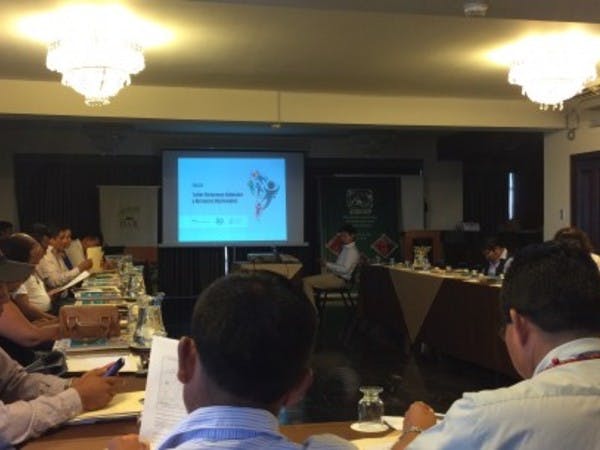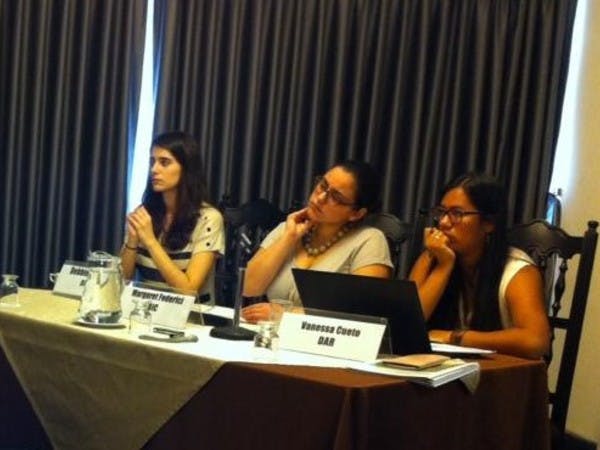
Lima, Peru. January 24, 2017
The goal of the workshop was to seize the opportunity presented by the World Bank’s development of a new Country Partnership Framework (CPF) with the government of Peru (GOP), a document that determines the development priorities and the nature of World Bank investment in the country in the period 2017-2021.


BIC and DAR kicked off the workshop with a discussion of current World Bank activities in Peru, dominated by two development policy loans (DPLs) that amount to a $2.5 billion investment in Peru’s legal framework and represent a serious threat to forests, climate and the rights of local and indigenous peoples. According to their new report: World Bank Development Policy Finance and Climate Change: Is the Bank providing the Right Incentives for Low-Carbon Development in Peru? (English here), the principle aim of the DPLs is to create a more favorable environment in Peru for private investment through public-private partnerships (PPPs)- a move consistent with the economic policy of current Peruvian President and former World Bank and IMF employee, Pedro Pablo Kuczynski. DAR and AIDESEP demonstrated the link between World Bank- sponsored reforms and the recent ‘paquetazo’ of more than one hundred decrees from the GOP that went into effect under the cover of this past Christmas and New Year’s holidays, which contain provisions, for example, that will facilitate land acquisition for major transport infrastructure projects in the Amazonian regions of Loreto and Ucayali.


Outcomes
A meeting with World Bank staff in Lima, which BIC attended alongside DAR, AIDESEP and CGTP resulted in an agreement to extend the period for public comment on the CPF by one month, and to meet again with Peruvian civil society to discuss the Bank’s SCD for Peru, the GOP’s recent legislative decrees and their implications, and the content of the CPF (once further solidified, though the Bank maintained that it could not disclose the full draft without authorization from the GOP). The statement from civil society (see English version here) was presented to World Bank officials at the meeting and was published in the Peruvian newspaper La República on January 30th. Among other demands, it calls for the World Bank to “reduce pressure on forests and the people who depend on forests, biodiversity and carbon stocks” and “increase its role in the fight against climate change, especially in forest-covered areas; which implies that the current funds it administers must have better management…”

The time is ripe for this kind of campaign given the recent scandal with Brazilian company Odebrecht, which has sent political shock waves across the region and opened space for civil society to pressure national officials, multilateral banks and other investors for transparency in their planning of development projects and procurement of development-related contracts, particularly for PPPs that pose a threat to Peruvian forest and forest communities, and thus also to the global climate agenda.